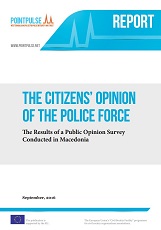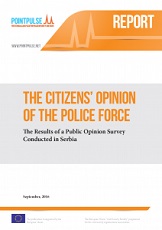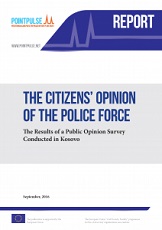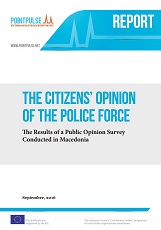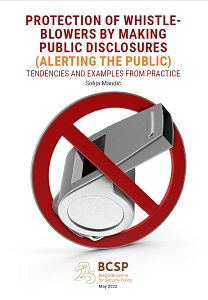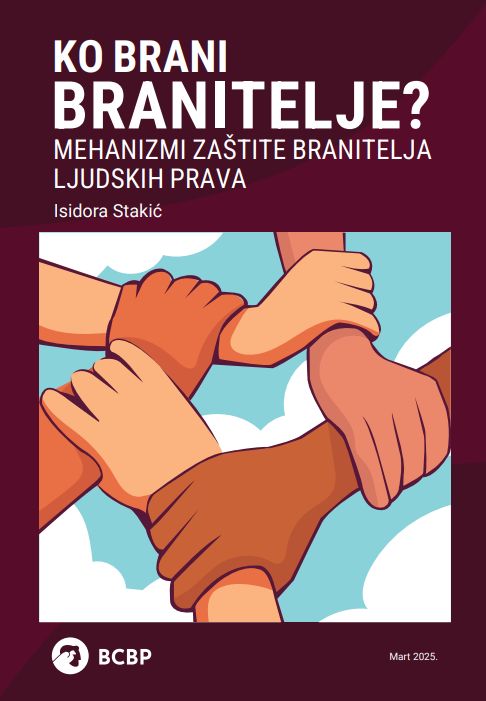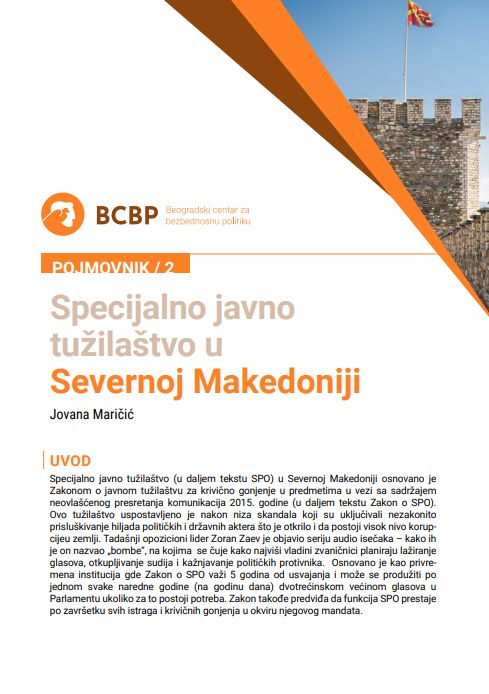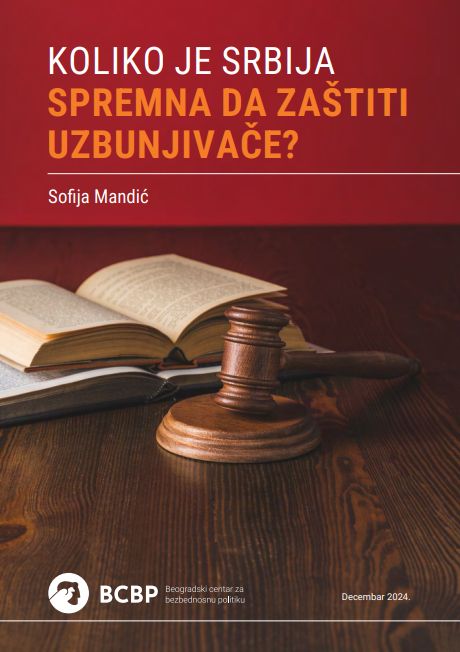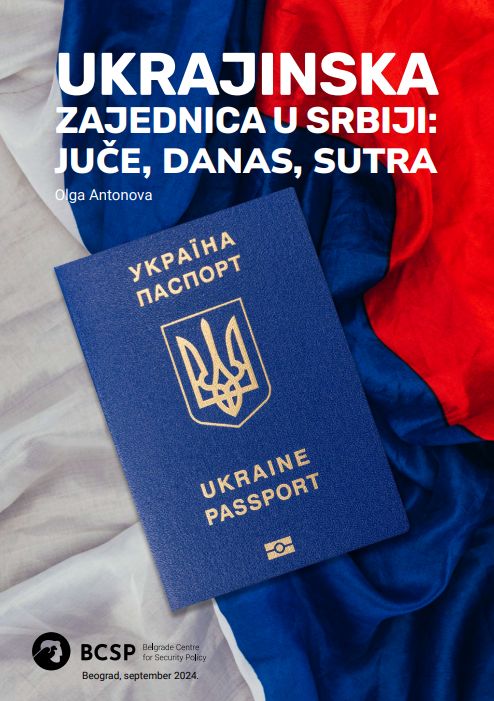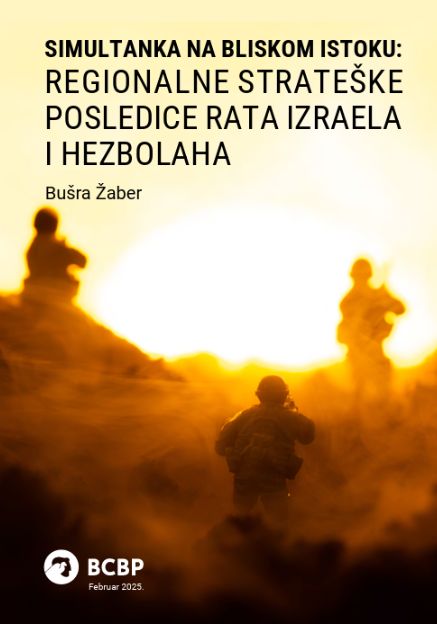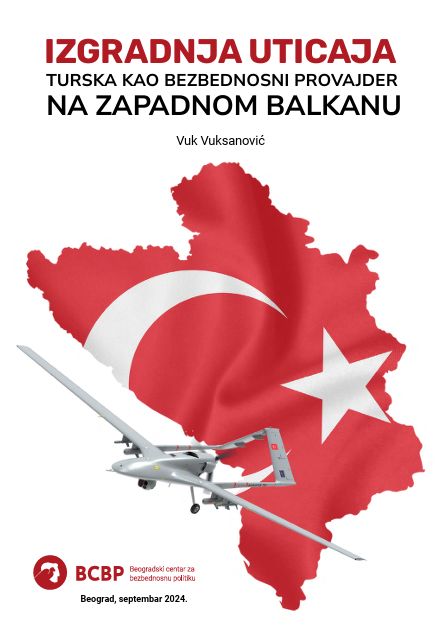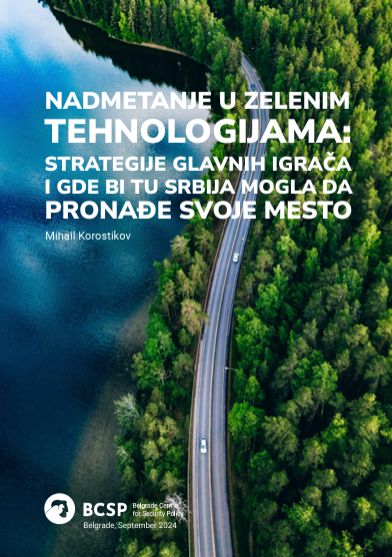
2016 THE CITIZENS’ OPINION OF THE POLICE FORCE - The Results of a Public Opinion Survey Conducted in Kosovo
2016 THE CITIZENS’ OPINION OF THE POLICE FORCE - The Results of a Public Opinion Survey Conducted in Kosovo
Keywords: police force; Kosovo; police sector; public opinion
This research show that the Kosovo Police, education institutions, media, civil society organisations, municipal authorities and health care institutions are listed as trusted institutions by about 50 percent of the respondents. On the other hand, judicial institutions, the Anti-Corruption Agency, the Assembly of Kosovo are listed as the least trusted institutions. The low level of trust of the respondents shows that these institutions are struggling to maintain their image and facing a rather challenging period in their work as reflected in the survey results. Kosovo Police appears to belong among the most trusted institutions in spite of the fact that the end of 2015 and the beginning of 2016 were marked as the most challenging periods for this institution. The positive perception can be attributed to the leading role that the Kosovo Police has taken in the fight against violent extremism. Closeness and daily contact with the citizens and even being considered as the first address to report issues and concern related to their safety – has been one of the factors leading to the increase of overall trust towards this institution. However, there is still a lot of scepticism among the respondents, especially bearing in mind the survey results in regard to the fight of police corruption and political influence over the police. Similarly to the overall good perception towards the police, the survey results show that there is positive perception towards police officers (both men and women). This perception has strong ties to the uniform and the nature of the work; seemingly the uniform is also associated with safety, protection and discipline. Regarding the hiring in the police, this process was accompanied by many debates. Nevertheless, the results show that a majority of respondents believe that the hiring process is fair, whereas nepotism, pulling strings, and political influence are believed to play a large part of the hiring process. In spite of the fact that more than half of the respondents listed the police as an institution that serves the citizens of Kosovo, the respondents also seem to think that they are highly influenced by politics. Moreover, the qualitative research shows that the respondents think that the politicians in Kosovo exercise extensive influence over this institution. Although the police is listed as the institution that serves the citizens’ interest the most by more than 50 percent of the respondents, a large group of them believe that politicians exercise influence over the Kosovo police and that the police serves the interests of the Government and small elites. The results show that the perception of the level of corruption in public institutions is very high and widespread in all institutions. Corruption within the police is a great concern of the citizens, mostly referring to the traffic police, border police, and the Minister’s associates as the most corrupted units. More than half of the respondents stated that the Government should fight corruption within the police force, followed by the Anti-Corruption Agency, the internal control mechanisms, while they listed non-governmental organisations as not capable of fighting corruption.
More...
